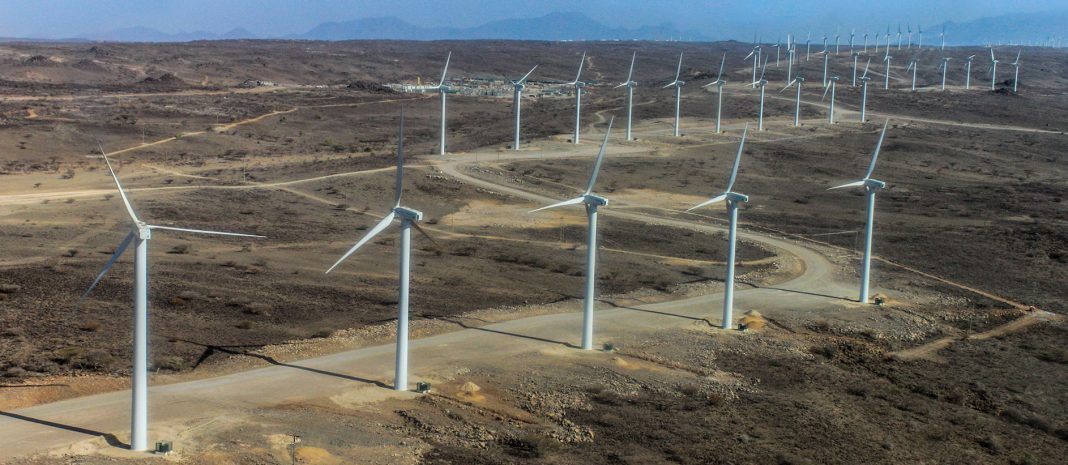There is almost no facet of society that will be left untouched by the ravages of the climate crisis and how we respond to it.
The crisis poses fundamental questions for the economy; it affects public health and jobs, and its threats range from food security to national security. That is why it will be among the central concerns of my government and why I believe any responsible world leader must make it a priority.
Climate change drives the droughts that affect the provision of water; destroys lives and livelihoods; cripples food production, and destroys our homes and infrastructure. Extreme temperatures affect migration patterns and exacerbate conflicts as hundreds of thousands flee to seek alternative livelihoods for survival.
Our response to this crisis cuts across every issue, from the sources of our energy, to how we transport ourselves, from the jobs that will sustain us in the future, to the quality of the air we breathe, the food we eat and the water we drink.
The climate emergency is here and now. Across Kenya, communities today are suffering the consequences. Millions of Kenyans and millions more from the Horn of Africa are on the brink of famine due to devastating drought.
It is not too late to respond, but to tackle this threat we must act urgently to keep the increase in global heating to below 1.5C (2.7F), help those most in need, and end our addiction to fossil fuels.
Africa is the continent most affected by climate change and yet the least responsible for it. Despite this, the continent has the opportunity to lead the world and show that we do not need to destroy the climate to prosper.
We have immense potential for renewable energy, and this abundance of wind and solar energy can power the development of Africa. Rather than trudging in the fossil-fuel footsteps of those who went before, we can leapfrog this dirty energy and embrace the benefits of clean power.
Kenya is home to the continent’s largest windfarm and our electricity supply is already 92% renewable, with 74% of our overall energy use powered by clean energy. I am reaffirming our commitment to move this to 100% clean energy by 2030. We call on all African states to join us in this journey.
As Africans, we will call for a rapid and just transition – delivering on the commitment by heads of state to double Africa’s installed energy capacity through renewables by 2030. Together, we can deliver energy access to almost half of Africa’s people, who remain underserved by the dirty energy systems of yesterday, by transitioning rapidly to the clean energy systems of the future.
As members of the international community, we will support a successful Cop27 international climate summit in Africa this November by demanding delivery of the finance and technology needed by Africa to adapt to climate impacts, support those in need, and manage the energy transition. At this meeting, we must move decisively from talk to on-the-ground action that benefits every African.
Among the outcomes from this global gathering must be a financing framework that enables Africa’s planned and orderly transition from fossil fuels; supports our workers, communities and national economies; and advances our development. Finance and technology must be provided to our developing countries while enabling all African countries to accelerate our transition to clean energy.
The global transition to clean energy is now more urgent than ever. The current energy crisis, partly caused by the war in Ukraine, underlines the need for less reliance on fossil fuels and much greater investment in renewables. As the German finance minister, Christian Lindner, said, renewables are “the energy of freedom”. The wind cannot be stockpiled to drive up its price; the sun’s rays cannot be switched off by a single person wishing to weaponise energy. Wind turbines and solar panels are quick to construct and can generate and deliver power far more quickly and easily than a new oil rig, and with much less harm to our fragile climate. Already renewables are the world’s cheapest form of new energy.
The energy crisis is a wake-up call that fossil fuels are the opposite of freedom, yet the world has become shackled to them. We need to break free from those chains, to accept there is a better way to power the world’s economy. It is one that is fairer, cheaper and less destructive to ourselves and our communities, to our families’ future, and to the natural environment on which we all depend.
This is a crossroads in history. Kenya is ready to rise to the challenge and help build a better world for Kenyans and all of humanity.
Also Read
Construction waste is costly: what’s causing it on South African building sites
Sustainable sanitation management key in achieving Vision 2030
The writer, William Ruto is the president of Kenya.

